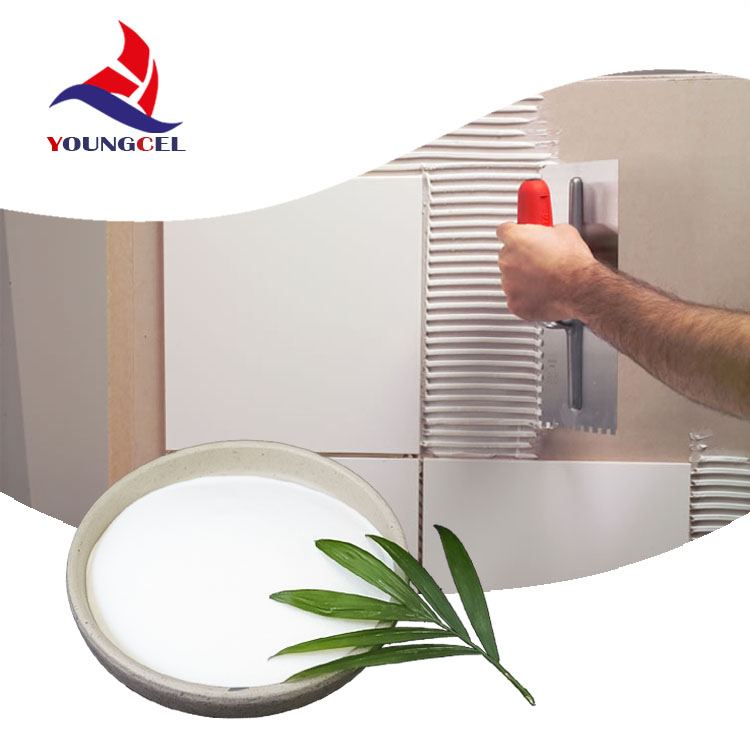The Role of China HPMC in Tile Adhesive Manufacturing
Tile adhesives play a crucial role in the construction industry, providing the necessary bonding between tiles and various substrates. With the increasing demand for durable and efficient building materials, the use of Hydroxypropyl Methylcellulose (HPMC) in tile adhesives has gained significant attention. China has emerged as a major producer of HPMC, and its application in tile adhesives is pivotal for enhancing their performance and functionality.
What is HPMC?
HPMC is a non-ionic cellulose ether that is widely used in various industries, including construction, pharmaceuticals, and food. It is derived from natural cellulose and modified to improve its properties, making it an essential component in many formulations. In the context of tile adhesives, HPMC serves multiple functions such as improving workability, increasing water retention, and enhancing adhesion properties.
The Importance of HPMC in Tile Adhesives
1. Workability Improvement One of the primary benefits of incorporating HPMC into tile adhesives is the enhancement of workability. HPMC allows for a smoother application, making it easier for workers to spread the adhesive evenly over surfaces. This improved workability minimizes the effort needed to install tiles, resulting in a more efficient workflow on construction sites.
2. Water Retention HPMC is known for its excellent water retention properties. In tile adhesives, this characteristic is vital as it allows the adhesive to remain workable for a longer period before setting. Extended open time is particularly beneficial in situations where tiles need to be repositioned or adjusted after initial placement. Furthermore, good water retention ensures proper curing of the adhesive, leading to stronger bonds.
3. Enhanced Adhesion The inclusion of HPMC in tile adhesives contributes to improved adhesion to various substrates, including cement, gypsum, and other construction materials. Enhanced adhesion is crucial for ensuring that tiles remain securely bonded to surfaces, thereby reducing the risk of tile slippage or detachment over time.
china hpmc for tile adhesive

4. Flexibility and Anti-Shrinkage HPMC-modified tile adhesives exhibit increased flexibility, which is important in applications where movement or temperature fluctuations can occur. This flexibility helps to absorb stresses and prevent cracking of tiles and grout lines. Additionally, HPMC aids in reducing shrinkage during the curing process, further ensuring a stable bond.
5. Environmental Compatibility With growing awareness of environmental sustainability, the demand for eco-friendly building materials is on the rise. HPMC is derived from renewable resources and is biodegradable, making it a preferred choice for manufacturers looking to produce environmentally friendly tile adhesives. By using HPMC, companies can meet the increasing consumer preference for sustainable construction practices.
The Chinese Market for HPMC
China is a global leader in the production of HPMC, supplying a significant portion of the world’s demand. The country's advanced manufacturing capabilities, combined with a robust supply chain, enable it to produce high-quality HPMC at competitive prices. Furthermore, China's commitment to research and development has led to innovations in HPMC formulations, enhancing its performance in tile adhesives and other applications.
As the construction sector continues to expand, driven by urbanization and infrastructure development, the demand for HPMC-based tile adhesives is expected to rise. This trend presents a significant opportunity for manufacturers to meet the needs of both domestic and international markets.
Conclusion
In summary, China’s production of Hydroxypropyl Methylcellulose (HPMC) plays a pivotal role in the formulation of tile adhesives. Its numerous benefits, including improved workability, water retention, adhesion, flexibility, and environmental compatibility, make it an indispensable ingredient in modern construction practices. As the construction industry evolves, the reliance on HPMC in tile adhesives is set to grow, reinforcing its significance in delivering high-quality, reliable building solutions. The future holds promising potential for HPMC, particularly as the push for sustainable and efficient materials continues to shape the construction landscape.
-
The Application and Significance of Construction RdpNewsMay.19,2025
-
Industrial Grade HpmcNewsMay.19,2025
-
Building Coating Adhesive Building Coating Adhesive HpmcNewsMay.19,2025
-
Application Of Hpmc For Detergent For Detergent In DetergentsNewsMay.19,2025
-
Application Of Hpmc Cellulose In Cement-Based MaterialsNewsMay.19,2025
-
Application Of High Quality Hpmc For Construction In The Field Of ConstructionNewsMay.19,2025




